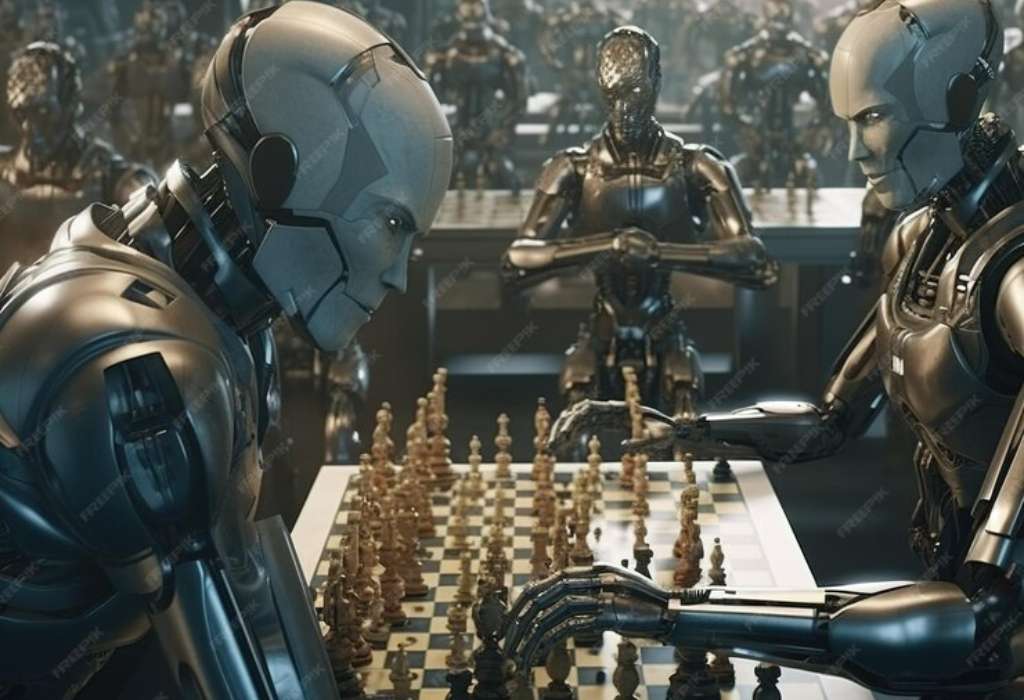
Chess Bot Extension in 2024
A Javascript-coded, Chrome Extension-based chess bot extension has a move analysis feature that makes use of the open-source Stockfish engine. The game’s start and finish are automatically recorded. The game state is analyzed move by move. After analyzing 14 moves, the best move is determined based on possible outcomes.
Chess Bot Extension History
Alan Turing published the first program that could play an entire game of chess in 1951. The program’s initial conception took place in a tangible format. Researchers consistently made advancements in the following years. Developers created new chess engines and games during this period.
But, perhaps because they lacked efficient resources and tools, these AI chess engines had not yet succeeded in reaching a greater level of performance.
Chess world champion Garry Kasparov strongly implied in the 1980s that artificial intelligence (AI) chess engines would never be able to defeat elite chess grandmasters. His assertion held water for a few years as he soundly upheld his throne against IBM’s Deep Blue in a six-game contest that ended in a 4:2 score in 1996.
Early Chess AI Video Games
Game having has been a pivotal influence of computer-based intelligence research right all along. The realm of computer-based intelligence has witnessed substantial developments, progressing from rudimentary match games like Nim (a variation of the Deduction Game from 1951) to the momentous occasion in 1997 when Garry Kasparov succumbed to IBM’s Deep Blue.

What Is Deep Blue?
IBM was the creator of Dark Blue, a computer dedicated to playing chess. Dark Blue gained renown for defeating GM Garry Kasparov in 1997. Kasparov, the world’s top chess player, was defeated by Dark Blue. This victory marked a significant win for machines over humans. It demonstrated the power of computerized reasoning and highlighted the rise of technology.
The First Automated Chess Players
The exemplary table game Chess isn’t only perhaps of the most well-known game in the Western world yet In addition, a wellspring of logical interest. A game has delighted players for over a thousand years and has been the subject of title competitions for a long time.

In any case, maybe more basically, for us at any rate, it has had a significant impact on computer-based intelligence history.
What is AlphaZero?
AlphaZero is a self-gaining PC program from Google DeepMind that learns the tabletop games Go, Chess, and Shogi utilizing its calculation. For this, it joins AI with brain organizations. To learn one of the tabletop games referenced, Man-made brainpower is just the guidelines of the game, playing conditions, and concentrated playing against itself. It isn’t important to be educated by people.
What is the Current Strongest Chess Bot Extension?
The topic of the ongoing most grounded chess man-made intelligence is a subject of progressing discussion and rivalry inside the artificial intelligence local area.
While AlphaZero’s rule was prominent, it has areas of strength for confronted from ensuing variants and emphases of other chess motors. The chess man-made intelligence scene is dynamic, with incessant updates and upgrades.

In the meantime, AlphaZero’s special way of dealing with chess and its ability to challenge the customary way of thinking made it an impressive rival.
Since man-made intelligence advancement advances quickly, it’s crucial to take a look at the most recent updates and competitions in the chess man-made intelligence world to decide the ongoing most grounded player.
Alternative Chess AI Platforms
Stockfish
Stockfish is the most grounded chess motor accessible to the general population and has been for a lot of time. A free open-source motor is presently evolved by a whole local area. Stockfish depended on a chess motor made by Tord Romstad in 2004 that was grown further by Marco Costalba in 2008. Joona Kiiski and Gary Linscott are likewise viewed as originators.
Leela Chess Zero (LCZero)
Chess motors utilizing the Alpha-Beta hunt calculation were the standard and the main choice for quite a while. The savage power of these motors crushed the most grounded human players and carried chess higher than ever. It seemed as though nothing could at any point have the option to contend with them.
Then a brain network-based chess program, AlphaZero, ventured onto the scene and changed the game for eternity. Unfortunately, no one can purchase or license AlphaZero, but chess fans cheered when the Leela Chess Zero project was announced — the arrival of a brain network engine was a dream come true for many.
Komodo
Another solid chess motor, Komodo, uses both customary chess information and present-day computer-based intelligence methods to play at an undeniable level. Houdini: Houdini is known for its strategic ability and capacity to compute profoundly, making it a considerable rival.

Conclusion
The ascent of chess artificial intelligence, from Dark Blue to AlphaZero, has reshaped the scene of chess and computerized reasoning. Dark Blue’s triumph over Garry Kasparov denoted a notable crossroads in simulated intelligence history, displaying the force of beast-force computation.
The mission for the most grounded chess computer-based intelligence proceeds, with motors like Stockfish, Komodo, Houdini, and LCZero competing for the best position. The steadily advancing nature of artificial intelligence guarantees that the universe of chess stays dynamic and loaded up with invigorating turns of events.
As we plan, obviously computer-based intelligence will proceed to impact and improve the universe of chess, provoking human players higher than ever of expertise and innovativeness. Whether it’s Dark Blue, AlphaZero, or the following historic chess artificial intelligence, the excursion of man and machine in the realm of chess is nowhere near finished.






